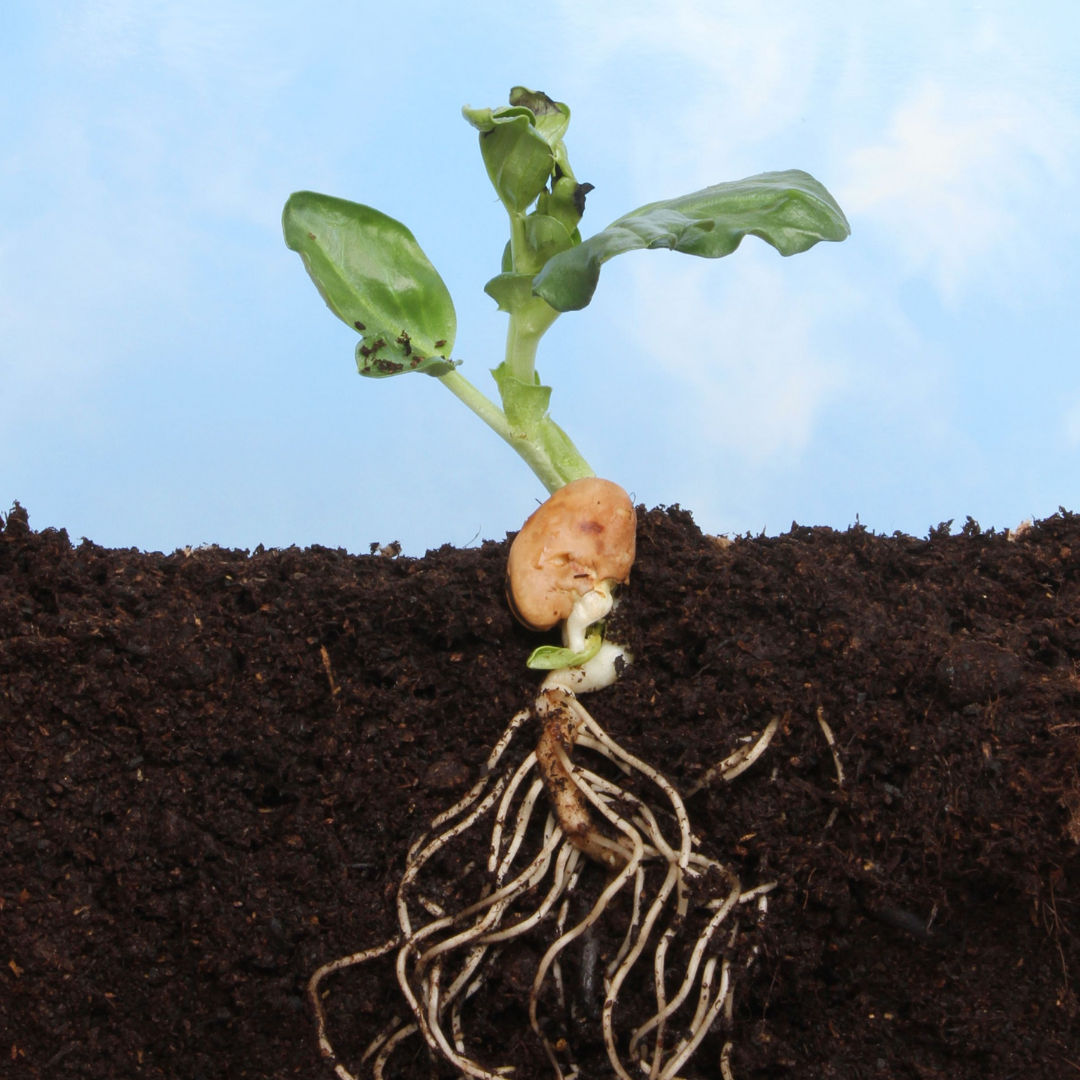The Important Role of Microbes in Plant Nutrient Supply

Foto: Pinterest
(Istimewa)Plants need a supply of nutrients along with sufficient water, exposure to sunlight, and a suitable temperature to grow and produce. We humans and animals will get them from the food we consume, while plants get their much-needed nutrients from the soil where they are planted. Healthy soil is packed with balanced nutrients such as nitrogen (N), phosphorus (P), potassium (K), calcium (Ca), magnesium (Mg), sulfur (S), and other macro and micronutrients. Here are brief descriptions of the big three nutrients and their role in plant growth.
Nitrogen (N)
Nitrogen is absorbed by plants more than any other nutrients, which is why nitrogen is considered to be the most important nutrient for plants. This nutrient is absorbed in a large amount by plants because it is essential in the formation of proteins that makes up much of the tissue of most living things. It is also part of the chlorophyll molecule that gives plants its green color as well as creating food for plants through photosynthesis.
Phosphorus (P)
Phosphorus is a vital component of the energy units of plants or ATP that is formed during photosynthesis. It is also linked to plants’ ability to store and use energy and stimulates root growth, especially during the start of planting where the seed is starting to take root.
Potassium (K)
Potassium plays a big role in keeping plants healthy. It helps strengthen plants’ ability to ward off diseases, protect the plants when the weather is cold or dry, strengthen root systems and prevent wilt. Other than a source of strength for plants, potassium also helps in forming protein and carbohydrates.
But healthy soil can’t be determined from just the macro and micronutrients available. A healthy soil is a soil “alive” with an ecosystem of living organisms be it microscopic or larger. The living organism performs many vital functions for the soil including improving soil structure for better holding soil water and nutrients. It also helps in converting dead and decaying matter as well as minerals into plant nutrients also called nutrient cycling. This process of biological decomposition affects the chemical and physical properties of the soil as well as its overall health. Keeping the soil “alive” with organic matter ensures the nutrient exchanges between it keeps happening and in turn affect the fertility of the soil.
The Harmful effects of chemical fertilizer on the soil bacteria
Continuous agricultural activities will result in nutrient loss for the soil. To restore the loss of nutrients in the soil, farmers will compensate with the use of fertilizer. Fertilizer is usually used to give their crop a boost of nutrients that allows it to grow bigger, faster, and produce more food. Most of the time these nutrients come in the form of chemical fertilizer. Containing a large number of synthesis chemicals, this type of fertilizer can be harmful to use in the long run.
The continuous application of chemicals can lead to soil acidification. Overuse of nitrogen can lower the pH level of the soil. Ideally for plant growth and crop yield, the pH level of the soil is between 5,5 and 8. With the continuous spray of chemical fertilizer containing high amounts of nitrogen, the topsoil can turn acidic. As a result, the natural organism in the soil cannot thrive. With the decrease of natural organisms such as bacteria in the soil, the soil will lose its fertility because it cannot balance the high amount of chemicals from chemical fertilizer and in turn, make farmers dependent on chemical fertilizer to supply nutrients for plants.
Through the agriculture census, Statistics Indonesia (BPS) reported that in 2013 the number of farmers using chemical or inorganic fertilizer was 86,41 percent. Meanwhile, 13,5 percent uses a mix of inorganic and organic and only 0,07 percent uses organic fertilizers.
“This shows that farmers in Indonesia are more interested in using inorganic fertilizers. Even though behind that, the threat to Indonesian agriculture is very big” said Sarwo Edhy, Director General of Agricultural Infrastructure and Facilities as reported from kompas.com.
The use of inorganic fertilizer threatens the fertility of the soil and in turn the continuation of agriculture in Indonesia. This is why the Agricultural Minister in Indonesia encourages farmers to use chemical fertilizer sparingly and start to utilize organic fertilizer.
Use of proper fertilizers to help restore soil fertility
Organic fertilizers can help return the organic matter to the soil. This fertilizer comes from organic matter such as manure that comes from animal waste, green manure from dead plants, and compost that farmers can use to increase the health of their soil. Researchers from the Indonesian Soil Research Institute (Balittanah) said that organic fertilizer can be enriched with microbes such as Trichoderma, antipathogen producing microbes, P solubilizing microbes, and N-fixing bacteria. Adding microbes to organic fertilizer can increase the functionality of organic fertilizers, but keep in mind that adding it needs a series of processes and qualifications to properly produce a functional fertilizer.
Mass-produced fertilizers such as Ecofert and Biotara from Pupuk Kaltim (East Kalimantan) are excellent examples of enriched fertilizers that farmers can use. Ecofert, enriched with organisms such as Bacillus subtilis, B. flexus, Pseudomonas mendocina, and Aspergillus niger can be applied to increase the amount of nitrogen and phosphorus in the soil naturally. Its application also increases the fertilizer efficiency so that it needs 25% less NPK (nitrogen, phosphorus, potassium) fertilizer.
Microbe enriched organic fertilizer proves to be a better solution for farmers in the long run. For example, an organic fertilizer enriched with Trichoderma can reduce wilting from Fusarium fungus in chili plants and brown spots from tomato plants. A problem that usually requires chemical fertilizer can be solved organically to ensure no damage has been done to the soil or the crop itself.
